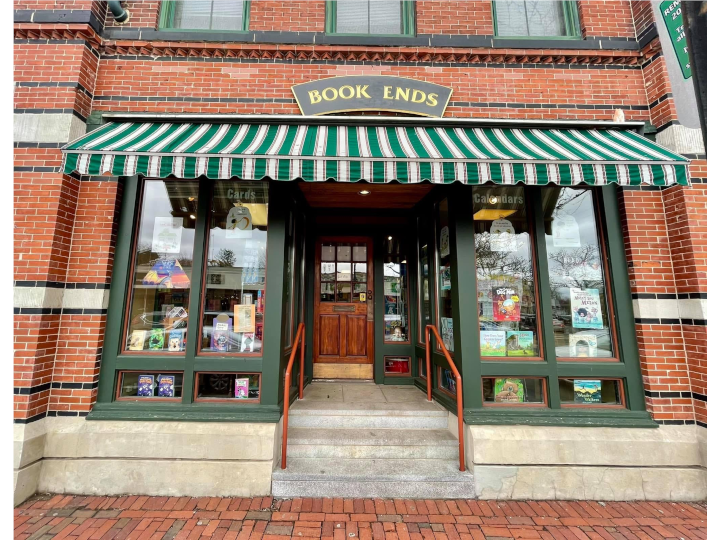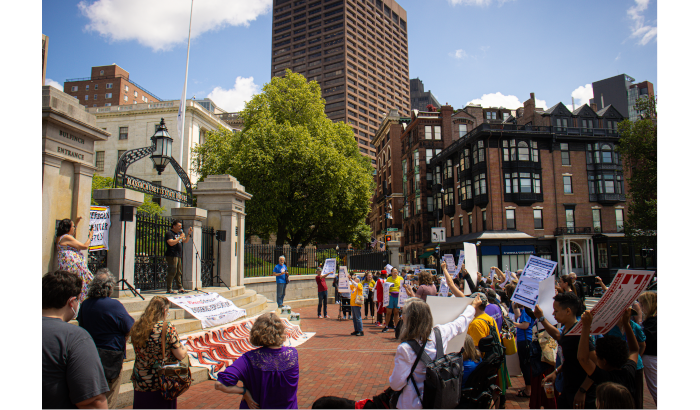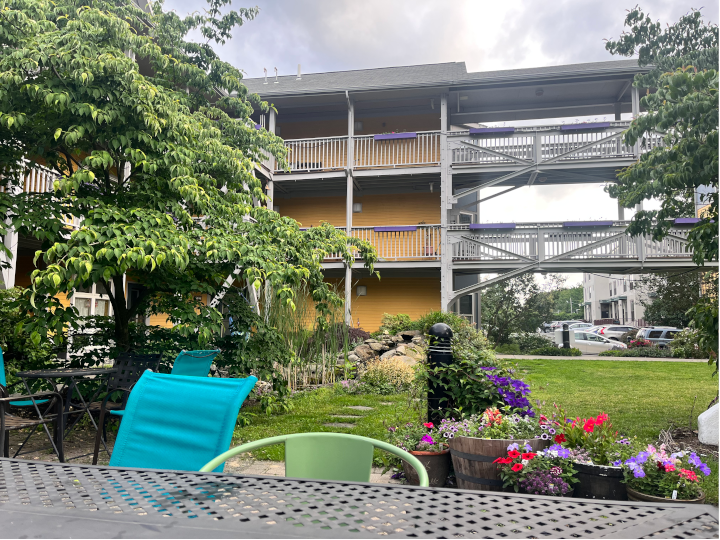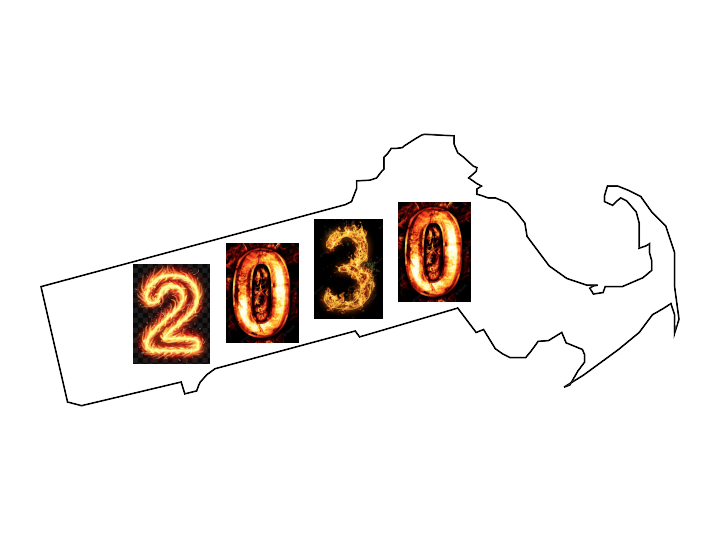Despite the saturation of competitive indie bookstores in and around the Mass. capital, many are forming alliances and fostering community to keep the local literary culture alive
BOSTON – Independent bookstores in the Boston metropolitan area hold their historic influence on local culture with an iron grip. The region draws a literature-loving community that has kept renowned indie classics like Harvard Book Store, Brookline Booksmith and Porter Square Books alive for decades. Motivated by these stores’ success, local entrepreneurs have been eagerly joining the indie bookstore market.
Nowadays, you can’t throw a stick in the heart of the region without hitting an indie.
“In Greater Boston, when you’re in the bookstore industry, you’re playing Varsity A baseball,” Christina Pascucci-Ciampa, owner of All She Wrote Books in Somerville, said. “It is about being innovative and different, and differentiating yourself from the rest.”
Pascucci-Ciampa noticed a lack of diversity in feminist and LGBTQ+ texts available at local indies, which inspired her to open a store that specifically highlighted underrepresented voices. Other booksellers in the area also foster unique qualities in their brick-and-mortar stores to set them apart from the crowd. For instance, after Lauren Tiedemann and Jillian Hartline bought Book Ends in 2022, they began hosting wine tastings and multiple niche book clubs for kids and adults alike at the Winchester store.
However, many owners in the industry seem to agree that they are not competitors in this “Varsity A” baseball game—but rather, teammates. Together, they’re swinging for the fences against a greater opponent: Amazon.
“Yes, of course, we are competitors, but as much as friends and fellow allies in this fight against Amazon and box chain stores,” Tiedemann said.
After Amazon launched as an online bookstore in 1994, many Boston-area bookstores such as New Words Bookstore and Globe Corner Bookstore shut down in the following years. The online company still has some substantial advantages that threaten the existence of brick-and-mortar stores every day.
This year’s first annual North of Boston Book Trail is a symbol of independent bookstores’ comradery in the face of such hardship. Since April, it has challenged participants to visit as many of the 16 independent bookstores on the trail—from Winchester to North Andover, to Gloucester—before Labor Day. Tiedemann said that the group is planning to expand the North of Boston Book Trail and create other regional book trails—such as ones for the South Shore and Cape Cod—in upcoming years.
Debbie Sullivan, who runs the Book Oasis in Stoneham with her husband, said that around 300 people stopped by her store for the Book Trail in the first weekend of the challenge alone. The Book Oasis started as an entirely used bookstore in 2002 after selling books at local flea markets for years, but now stocks about a fifth of its inventory with new books, according to Sullivan.
“Now, we have a little bit of everything, but even still we try to stick to the paperback versions of things,” Sullivan said. “People know we’re not here to be all of Barnes & Noble. We don’t want that, and we have other bookstores we can recommend. Book Ends, Whitelam Books—they’re all new. So if I don’t have it, I usually have phone numbers ready to go.”
The first North of Boston Book Trail came soon after an “unofficial group” of independent bookstore owners based in the city and its northern suburbs had begun meeting not just as colleagues, but as friends. On a regular basis, store owners meet informally and at one another’s stores for a “gathering with no agenda and just a space to come together and support each other,” according to Tiedemann, who added that this practice started in early 2024. Business owners can seek advice, compare notes and discuss topics that may be taboo at official industry conferences hosted by the New England Independent Booksellers Association or the American Booksellers Association.
“It’s really nice to feel like you’re in a safe space to say, ‘this is driving me crazy. I wish the publishers wouldn’t do this,’ or ‘I’m just so tired of the prices going up,’ or whatever it is,” Sullivan said. “You’re in a place [where] people understand where you’re coming from. We gain just familiarity with other people that are doing the same thing we are, and that compassion.”
While these informal get-togethers are inclusive to all local indie bookstore owners, it is not so easy to pull up a chair. Bookstores are notoriously expensive businesses to start, and for independent ones, the unpredictability of sales can be a make-or-break factor. Owners often analyze data on how authors and books are performing both across the board and at their store specifically, with minimal help from advanced algorithms or databases. Then, they take a calculated guess to decide which books to order for their inventory and how many copies of each.
When Pascucci-Ciampa was ready to become a bookseller in 2019, a brick-and-mortar store in the Boston area was unaffordable. She decided to start All She Wrote Books as a “pop-up” bookstore instead, taking a curated table of books to local fairs and events.
“The way that people will be coming up in the world with newer bookstores or newer concepts will be in the way of a pop-up—by testing it out and seeing if it works, or being more on the smaller side versus the larger side,” Pascucci-Ciampa said. “ If you’re in the industry, you understand the startup costs are what ultimately makes or breaks a situation here. The only way to acquire books is to ultimately buy a bunch of them and stock them and hope that they sell.”
Bookstore owners shared that their community suspects that publishers offer Amazon a higher discount on books, allowing the company to undervalue the product and ultimately putting greater financial pressure on the stores. Pascucci-Ciampa and Tiedemann explained that Amazon can sell books far below their market price and thus, much cheaper than their bookstores can.
“It’s hard for us to explain [to customers], well yes it’s $30 here and it’s $16 on Amazon, but by buying it here you are supporting local, you are keeping a brick-and-mortar store in business [and] you are supporting the community in terms of creating jobs,” Tiedemann said. “We support a lot of the local schools, so there is a lot that we do to give back to the community. So by spending the money here, it’s more than just dollars to us and dollars to Amazon.”
Beyond the community benefit of indies, booksellers strive to give customers an individually fulfilling experience when they step inside their store. Many host a variety of events and book clubs, as well as go to great lengths to connect readers with the books that they seek. As Pascucci-Ciampa explained, while Amazon and online retailers receive a plethora of data to make algorithmic book recommendations to readers, it’s no match for what booksellers can do after one conversation with a reader.
“We have a better ability as booksellers to listen and take that information to pair people perfectly with the books that they need, and I think that’s a gift,” Pascucci-Ciampa said. “I think that’s a superpower that we all have.”
Amazon did not reply to requests for comment from HorizonMass for this story.
This article was produced for HorizonMass, the independent, student-driven, news outlet of the Boston Institute for Nonprofit Journalism, and is syndicated by BINJ’s MassWire news service.






